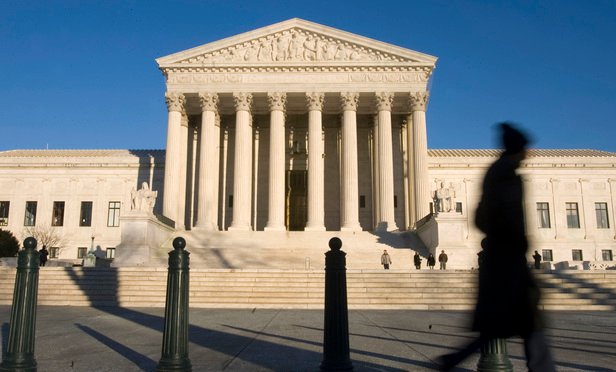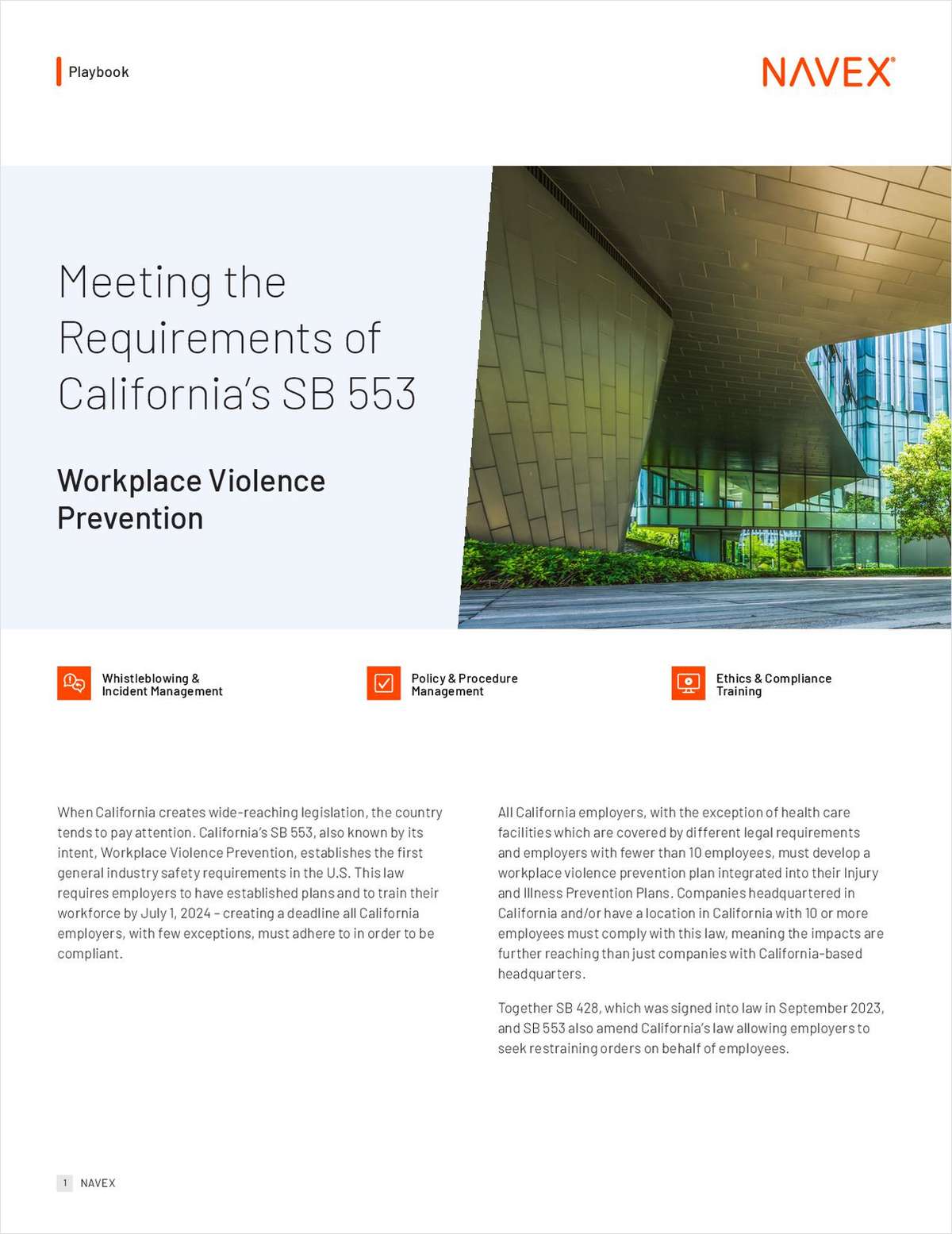Third Circuit Strikes Down NJ Sports-Betting Law, Again
The Third Circuit has once again struck down New Jersey's sports betting law, finding the state's attempt to legalize sports betting through simply…
August 25, 2015 at 07:43 PM
5 minute read
The Third Circuit has once again struck down New Jersey's sports betting law, finding the state's attempt to legalize sports betting through simply repealing the ban on it still violated federal law.
In a split decision Tuesday, the majority in National Collegiate Athletic Association v. Christie said New Jersey's 2014 law repealing certain prohibitions on sports gambling violated the 1992 federal Professional and Amateur Sports Protection Act, which bans states from authorizing sports betting.
Senior Judge Marjorie O. Rendell said for the majority that the court acknowledged the state's “salutary” purpose in trying to legalize sports betting to revive its “troubled” casino and racetrack industries. She said PASPA has “clearly stymied” the state's attempts to revive those industries.
“While PASPA's provisions and its reach are controversial and, some might say, unwise, 'we are not asked to judge the wisdom of PASPA' and 'it is not our place to usurp Congress' role simply because PASPA may have become an unpopular law,'” Rendell said, citing the court's decision revoking New Jersey's first attempt at legalizing sports betting.
New Jersey's first attempt in 2012 at legalizing sports betting was struck down by an earlier U.S. Court of Appeals for the Third Circuit panel, which found the law expressly authorized the betting and was pre-empted by PASPA. The state, through counsel Theodore Olson of Gibson, Dunn & Crutcher, argued before the court in March that the 2014 law repealing some of the state's existing prohibitions on sports betting cured the court's initial concerns as it was not an authorization by law. The state argued that having no law is not the same as authorizing an activity by law.
The NCAA, along with the National Hockey League, National Football League, National Basketball Association and Major League Baseball, all argued the new law equally rubber-stamped sports betting. Paul Clement of Bancroft, arguing for the NCAA, had called the 2014 law a “targeted partial appeal to allow [New Jersey] to channel all sports betting to [its] favorite venues.”
Judge Julio M. Fuentes, the author of the court's opinion striking down the 2012 law, dissented from his colleagues this time around, saying he couldn't see how the 2014 law was tantamount to the “authorizing by law” requirement of PASPA.
But the majority in Christie II, as it is now called, saw it much differently. The 2014 law repealed bans on sports betting only for casinos and racetracks, keeping it illegal anywhere else.
“Absent the 2014 law, New Jersey's myriad laws prohibiting sports gambling would apply to the casinos and racetracks,” Rendell said. “Thus, the 2014 law provides the authorization for conduct that is otherwise clearly and completely legally prohibited.”
She said the 2014 law authorizes by law by “selectively dictating” where sports betting can occur. During oral argument, Rendell appeared most focused among her colleagues on the definition of “authorization,” wondering whether it meant “permit,” “allow,” “empower” or something else. She cited to Black's Law Dictionary in Tuesday's majority opinion, noting “authorize” means to “empower; to give a right or authority to act.”
“The 2014 law allows casinos and racetracks and their patrons to engage, under enumerated circumstances, in conduct that other businesses and their patrons cannot do,” Rendell said. “That selectiveness constitutes specific permission and empowerment.”
Rendell said if the 2014 law had repealed all prohibitions on sports betting, the court would be “hard-pressed” to find an authorization by law in violation of PASPA.
“While artfully couched in terms of a repealer, the 2014 law essentially provides that, notwithstanding any other prohibition by law, casinos and racetracks shall hereafter be permitted to have sports gambling,” Rendell said. “This is not a repeal; it is an authorization.”
Senior Judge Maryanne Trump Barry joined Rendell in the majority.
In his dissent, Fuentes looked to the definition of repeal, noting repealed statutes are treated as though they never existed. And a partially repealed statute is treated as if only the remaining part ever existed, Fuentes said. After the repeal, he said, it was as though New Jersey never prohibited sports betting in casinos or racetracks.
“Therefore, with respect to those areas, there are no laws governing sports wagering and the right to engage in such conduct does not come from the state,” Fuentes said. “Rather, the right to do that which is not prohibited stems from the inherent rights of the people.”
The state had appealed U.S. District Judge Michael A. Shipp of the District of New Jersey's finding that the 2014 law violated PASPA given the Christie I court found PASPA's desire to limit state-sanctioned sports betting allowed for either a total prohibition or a total deregulation that would not include the state's sponsorship.
Aside from arguments from Clement and Olson, Peter J. Phipps of the U.S. Department of Justice argued in support of PASPA's enforcement, Michael R. Griffinger of Gibbons P.C. argued in support of the law on behalf of the New Jersey Legislature and Ronald J. Riccio of McElroy, Deutsch, Mulvaney & Carpenter argued in support of the repeal on behalf of the New Jersey Thoroughbred Horsemen's Association.
Calls to Clement and Olson were not returned. Leland Moore, a spokesman for the New Jersey Office of Attorney General, said in a voicemail that “we are reviewing the decision and the dissent and considering our legal options.”
Gina Passarella can be contacted at 215-557-2494 or at [email protected]. Follow her on Twitter @GPassarellaTLI. (Copies of the 31-page opinion in National Collegiate Athletic Association v. Christie, PICS No. 15-1326, are available from The Legal Intelligencer. Please call the Pennsylvania Instant Case Service at 800-276-PICS to order or for information.)
This content has been archived. It is available through our partners, LexisNexis® and Bloomberg Law.
To view this content, please continue to their sites.
Not a Lexis Subscriber?
Subscribe Now
Not a Bloomberg Law Subscriber?
Subscribe Now
NOT FOR REPRINT
© 2024 ALM Global, LLC, All Rights Reserved. Request academic re-use from www.copyright.com. All other uses, submit a request to [email protected]. For more information visit Asset & Logo Licensing.
You Might Like
View All
Can Women Ever Be Paid Less Than Men? US Appeals Court Will Take New Look
3 minute read

The Right to an Abortion Was Crucial for Them, Attorneys Say

Trending Stories
- 1The Law Firm Disrupted: Playing the Talent Game to Win
- 2A&O Shearman Adopts 3-Level Lockstep Pay Model Amid Shift to All-Equity Partnership
- 3Preparing Your Law Firm for 2025: Smart Ways to Embrace AI & Other Technologies
- 4BD Settles Thousands of Bard Hernia Mesh Lawsuits
- 5A RICO Surge Is Underway: Here's How the Allstate Push Might Play Out
Featured Firms
Law Offices of Gary Martin Hays & Associates, P.C.
(470) 294-1674
Law Offices of Mark E. Salomone
(857) 444-6468
Smith & Hassler
(713) 739-1250









